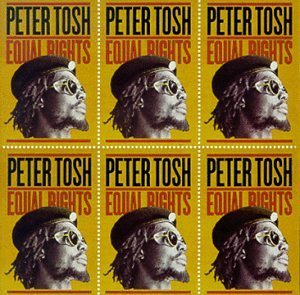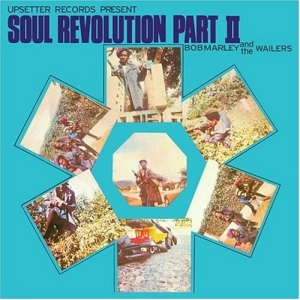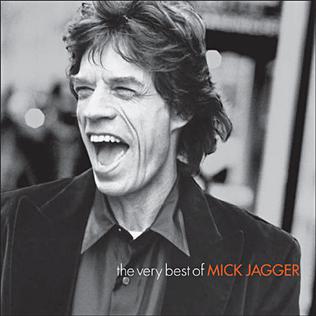
Legalize It is an album and song by Peter Tosh. Legalize It was Tosh's debut album as a solo artist after leaving the Wailers. It was recorded at Treasure Isle and Randy's, Kingston, Jamaica in 1976 and released in Jamaica in the same year.

Bob Marley and the Wailers were a Jamaican reggae band led by Bob Marley. It developed from the earlier ska vocal group, The Wailers, created by Peter Tosh, Marley and Bunny Wailer in 1963. By late 1963 singers Junior Braithwaite, Beverley Kelso, and Cherry Smith had joined on. By the early 1970s, Marley and Bunny Wailer had learned to play some instruments and brothers Aston "Family Man" Barrett (bass) and Carlton Barrett (drums), had joined the band. After Bunny Wailer and Peter Tosh left the band in 1974, Marley began touring with new band members as Bob Marley and the wailers. His new backing band included the Barrett brothers, Junior Marvin and Al Anderson on lead guitar, Tyrone Downie and Earl "Wya" Lindo on keyboards, and Alvin "Seeco" Patterson on percussion. The "I Threes", consisting of Judy Mowatt, Marcia Griffiths, and Marley's wife, Rita, provided backing vocals.

Alpharita Constantia Marley, OD, is a Cuban-born Jamaican singer and the widow of Bob Marley. She was a member of the vocal group the I Threes, along with Marcia Griffiths and Judy Mowatt, who gained recognition as the backing vocalists for Bob Marley and the Wailers.

"Here Comes the Sun" is a song by the English rock band the Beatles from their 1969 album Abbey Road. It was written by George Harrison and is one of his best-known compositions for the Beatles. Harrison wrote the song in early 1969 at the country house of his friend Eric Clapton, where Harrison had chosen to play truant for the day to avoid attending a meeting at the Beatles' Apple Corps organisation. The lyrics reflect his relief at the arrival of spring and the temporary respite he was experiencing from the band's business affairs. As of September 2019, it was the most streamed Beatles song on Spotify globally, with over 350 million plays.

Bush Doctor is the third studio album by Jamaican reggae singer Peter Tosh. It was released in 1978 on Rolling Stones Records. The album features Mick Jagger as guest vocalist on one song, while Keith Richards plays guitar on two tracks. The rhythm section featured Sly and Robbie.

Equal Rights is the second studio album by Peter Tosh. It was released in 1977 on Rolling Stones Records.

Mystic Man is the fourth studio album by Peter Tosh. All songs were composed by Peter Tosh. It was released in 1979 by Rolling Stones Records, EMI, and Intel Diplo.

Talkin' Blues is a live album by Bob Marley & The Wailers, released in 1991. It contains live studio recordings from 1973 and 1975 intercut with interview segments of Bob Marley. The majority of tracks are taken from the recordings Bob Marley & The Wailers did on 31 October 1973, at The Record Plant in Sausalito, California for San Francisco radio station KSAN. They include "You Can't Blame the Youth", sung by Peter Tosh, and "Get Up, Stand Up" with Bob Marley and Peter Tosh alternatingly taking lead vocals. The remaining tracks are taken from recordings made before the release of 1974's Natty Dread album, a performance at The Lyceum Theatre in London and interview segments from Jamaican radio in 1975.

Soul Revolution is an album by Bob Marley and the Wailers. It was produced by Lee "Scratch" Perry and the Wailers. A "dub" version with the vocals removed was released as Soul Revolution Part II. In 1988 both versions were released as one set.

The Wailing Wailers is the debut album by The Wailers published on the Studio One label. Originally released in very late 1965 and compiled from various recordings made over the years 1964-1965 by Neville “Bunny” Livingston, Robert “Bob” Nesta Marley and Peter “Tosh” McIntosh, it compiles what Clement Coxsone Dodd considered the best Wailers recordings from this period. They were accompanied by the Studio One backing band, The Soul Brothers.
"Don't Look Back" is a 1965 song recorded by The Temptations for the Gordy (Motown) label. The flip side to their Top 20 hit "My Baby", "Don't Look Back" broke out and became a hit among the R&B audience on its own, reaching #14 on the R&B charts.
Christopher Kenneth Kimsey is an English record producer, mixer and musician most famous for having co-produced The Rolling Stones' Undercover and Steel Wheels albums. He was also an engineer on their 1971 album Sticky Fingers as well as 1978's Some Girls and 1980's Emotional Rescue and assisted Mick Jagger and Keith Richards closely in preparing 1981's Tattoo You. He was the engineer and associate producer for both Emotional Rescue and Tattoo You.

The Very Best of Mick Jagger is a compilation album that was released worldwide on 1 October 2007 and the following day in the United States on WEA/Rhino Records. This 17-track release is the first ever overview of Mick Jagger's solo career.

"You Don't Miss Your Water" is a soul song and the debut single written and recorded by American singer William Bell. It was released by Stax Records in 1961. It is Bell's signature song and best known recording.

Skinhead Girl is a cover album by The Specials Released in 2000. After a project backing ska legend Desmond Dekker on his 1993 album King of Kings, producer Roger Lomas brought the band back into the studio to record covers of popular Trojan Records songs. Band member Lynval Golding left two weeks before the sessions, and was replaced by former Selecter guitarist Neol Davies on rhythm guitar.
Andrew Tosh is a Jamaican reggae singer and the son of Peter Tosh. He is the nephew of reggae singer Bunny Wailer, also an original member of The Wailers. Andrew has a strong vocal resemblance to his late father and like his father, rides the unicycle.
Double Take was a female pop duo consisting of Drew Garrett and Lauren Willey. They are mostly known for their single "Hot Problems". Both girls attended San Luis Obispo High School.
A Little Love may refer to

Peter M. Tosh, OM was a Jamaican reggae musician. Along with Bob Marley and Bunny Wailer, he was one of the core members of the band the Wailers (1963–1976), after which he established himself as a successful solo artist and a promoter of Rastafari. He was murdered in 1987 during a home invasion.

"Blame It on My Youth" is a song recorded by American rock band Blink-182. The song was released on May 8, 2019, through Columbia Records, as the lead single from the band's eighth studio album Nine. The song is an upbeat, nostalgic track that recounts the band's early days. It was written by bassist Mark Hoppus, drummer Travis Barker, and guitarist Matt Skiba, as well as producer Tim Pagnotta, and songwriters Sam Hollander and Matt Malpass. The song debuted with a lyric video featuring renowned graffiti artist Risk.














